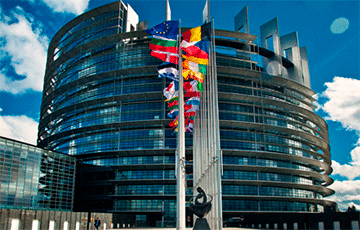European Parliament Adopts Duties On Products From Belarus
7- 22.05.2025, 18:33
- 14,838

The EU no longer wants to pay Moscow and Minsk.
The European Parliament has approved the European Commission's proposal to raise duties by 50 percent on sugar, vinegar, flour and fodder from Russia and Belarus, as well as to impose duties on fertilizers up to 430 euros per ton, writes Deutsche Welle.
A 50 percent increase in duties on a number of agricultural products from Russia and Belarus was approved by the European Parliament in Brussels on Thursday, May 22. At issue are the remaining products that until now have not been subject to any EU customs duties, among them sugar, vinegar, flour and livestock feed. Thus, once the new law comes into force, all agricultural imports from Russia will be subject to EU duties.
Eurodeputies also supported the introduction of 6.5 percent duties on fertilizers from Russia and Belarus, plus additional levies of 40-45 euros per ton during 2025-2026. By 2028, these duties will rise to 430 euros per ton.
The bill was passed in the first reading. It was supported by 411 deputies, 100 voted against it, 78 abstained.
The European Parliament adopted the proposal, which was made by the European Commission at the end of January. Now the EU Council must vote for it.
The innovation does not affect Russian exports of agricultural products and fertilizers to third countries, the European Commission stressed, "which is in line with the EU's commitments to ensure food security around the world."
This means, the press service explained, that the operations of buying and selling Russian agricultural products remain unchanged, as well as their storage in EU customs warehouses, transportation on its ships and the provision of insurance and financing services "In fact, these imports have increased significantly," the MEP said.
The volume of EU imports of urea and nitrogen fertilizers from Russia, already large in 2023, has increased significantly in 2024. The European Commission calls this situation economic dependence on Russia and believes that without proper intervention it could harm EU food security and, especially in the case of fertilizers, make the EU vulnerable to possible pressure from Russia.
Objective: to reduce EU dependence on supplies from Russia and Belarus
The EU aims to reduce dependence on supplies from Russia and Belarus and expects that the new measures will significantly reduce the volume of imports into the EU of the above-mentioned goods originating in or exported directly or indirectly from Russia and Belarus. The law will also boost EU fertilizer production affected by cheap Russian imports and give farmers time to adapt.
The European Parliament has instructed the European Commission to monitor and take measures to mitigate price rises that could harm the EU's internal market and agricultural sector.











